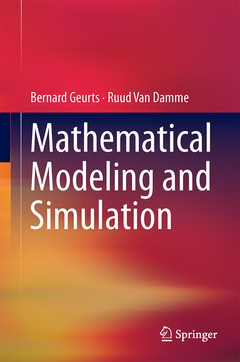Mathematical Modeling and Simulation, 1st ed. 2024
Auteurs : Geurts Bernard, Van Damme Ruud

Particular attention is given to engineering mathematics, addressing modeling, analysis, method development, implementation and testing of algorithms, as well as application to actual problems and critical interpretation of the results. The book can be used throughout bachelor programs and parts of masters programs, presenting a comprehensive suite of courses that link formal abstract thinking on the one hand to intuitive model formulation, critical algorithm development and interpretation of results on the other hand. The books contains numerous examples of practical applications from physics, technology, biology and chemistry. It also contains an introduction to Matlab and C for algorithm development and computational analysis. Software and solutions to selected problems are included.
Presents a large number of detailed examples from applications in physics, technology, biology and chemistry
Integrates theory and practical exercises including software and solutions to selected problems, allowing hands-on learning of all aspects of computational modeling
Covers in a unified way applied mathematics from calculus and analysis to methods for partial differential equations and numerical solution techniques
Contains an introduction to Matlab and C for algorithm development and computational analysis
Contains many sample implementations of core algorithms and numerical testing
Date de parution : 12-2024
Ouvrage de 440 p.
15.5x23.5 cm
